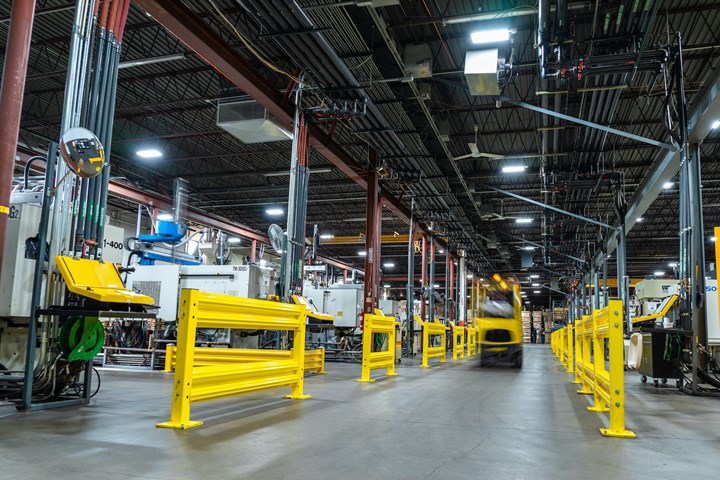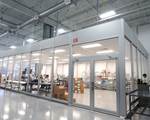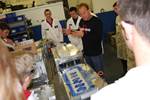Intertech Adds Five New Injection Molding Machines
The Denver-based custom injection molder added the Toyo all-electric presses in support of new business in the packaging, consumer and industrial goods segments.
Intertech Plastics LLC (Denver, Colo.) has added five new all-electric Toyo injection molding machines (distributed in North America by Maruka), including two 35-ton, a 55-ton, a 90-ton and a 200-ton to its original facility to serve new business in the packaging, consumer and industrial goods sectors. Combined with its medical injection molding facility acquired in 2013, Intertech now has 55 injection molding machines in total, ranging in clamp force from 35 to 1500 tons. Automation was added as well, including two new Wittmann Battenfeld top-entry robots and a custom designed and fabricated automated lid-closing cell.
In a press release, Intertech said this is the fifth consecutive year the company has made “significant investments” in its technology. The release also stated that in 2021, Intertech will continue its “Part Perfect” injection molding effort by launching a five-year strategic Technology & Innovation Roadmap. A company spokesperson told Plastics Technology that Intertech will also be investing in its medical molding division in 2021.

Intertech Plastics added five new all-electric Toyo injection molding machines to its original facility in Denver.
Related Content
-
Recycling Terminology Can Be a Minefield, So We Should Tread Lightly
Loose propagation of terms like “recyclable” and “compostable” has already brought down government regulations on labeling. The plastics and packaging industries should take that to heart with other recycle-related language. Like “monomaterial” for example.
-
Measuring Multilayer Plastic Containers Made Easier With Today's Ultrasonic Gauges
Ultrasonic gauge technology has evolved to simplify measurement of very thin layers in plastic containers. Today’s gauges with high-frequency capabilities and specialized software can make multilayer container measurement quick and easy for ordinary users.
-
For Extrusion and Injection-Blow Molders, Numerous Upgrades in Machines and Services
Uniloy is revising its machinery lines across the board and strengthening after-sales services in tooling maintenance, spare parts and tech service.












